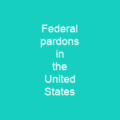Understanding Pleas: A Legal Journey
What is a plea, and why does it matter? In the world of law, a plea is like the opening move in a chess game – it sets the stage for what follows. When someone faces criminal charges, they must choose their response carefully, as this decision can significantly impact their future.
The Common Pleas: Guilty or Not Guilty
When you hear ‘guilty’ or ‘not guilty,’ these are the most straightforward choices. Imagine standing before a judge; your words could mean the difference between freedom and incarceration. But what if there’s more to it than just those two options?
Plea Bargaining: A Dance of Compromise
Enter plea bargaining, where the dance between prosecutor and defendant becomes a delicate negotiation. The goal is often to reach an agreement for a guilty plea in exchange for leniency. It’s like trading one card for another in a game – sometimes you get what you want, but not always.
Special Pleas: Unusual Moves on the Legal Board
There are special pleas that can be used to challenge aspects of the case or the court’s jurisdiction. These are like the wild cards in a deck – they can turn the game around, but you have to know when and how to play them.
Mental Incompetence: A Plea for Justice
When a defendant is deemed mentally incompetent, it’s as if their mind is clouded by a thick fog. This plea can be used to delay proceedings until the individual can understand and participate fully in legal processes.
The Conditional Plea: A Hesitant Step
A conditional plea is like walking on a tightrope – you admit guilt but reserve the right to appeal certain aspects of the charges. It’s a cautious move, balancing admission and potential challenges.
United States vs. United Kingdom: Different Rules for the Same Game
In the U.S., a defendant must enter their plea ‘knowingly, voluntarily, and intelligently.’ This is like ensuring every move you make in chess is deliberate and informed. The prosecution has to prove that all rights were waived properly, while defense counsel may not discuss collateral consequences unless it involves immigration.
Special Pleas in England and Wales: Unique Moves
In the U.K., a defendant must enter an ‘unambiguous plea.’ This means there’s no room for ambiguity – your words must be clear and direct. If they’re not, it could lead to complications.
Demurrer, Plea to Jurisdiction, and Pardon: Unusual Moves
Three special pleas exist in England and Wales:
- Demurrer: An objection to the form or substance of the indictment. It’s like questioning whether a piece on the board is even valid.
- Plea to Jurisdiction: Entered where the defendant believes the Crown Court doesn’t have the power to hear the case, usually for summary-only offenses. It’s like arguing that you’re not playing in the right league.
- Pardon: Relied on when a pardon has been granted by the Crown on the advice of the Home Secretary. It must be pleaded at the first opportunity. This is like having a golden ticket to escape the game entirely.
The Future of Pleas: A Game in Transition
In modern times, the plea has become less about tradition and more about practicality. The focus shifts towards ensuring that every move is fair and just. But what does this mean for defendants? It means understanding your options thoroughly and making informed decisions.
Plea in Mitigation: A Final Appeal
A plea in mitigation involves a lawyer presenting extenuating circumstances to the judge, hoping for a lesser sentence. It’s like pleading for mercy – it can make all the difference.
So, when you’re faced with a legal challenge, remember that your words carry weight. The choice of your plea could be the turning point in your case. Will you take a bold step or play it safe? Only time will tell what move will lead to victory.

You want to know more about Plea?
This page is based on the article Plea published in Wikipedia (retrieved on December 23, 2024) and was automatically summarized using artificial intelligence.







